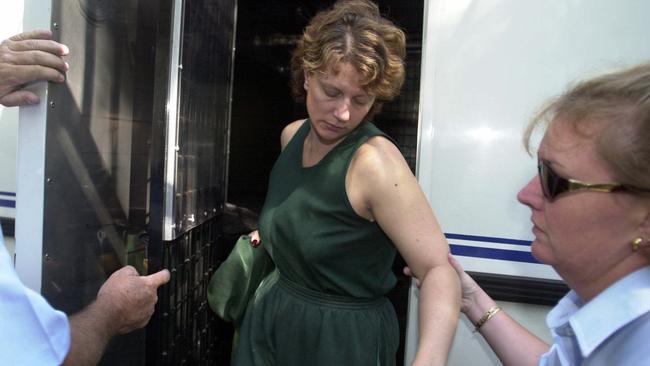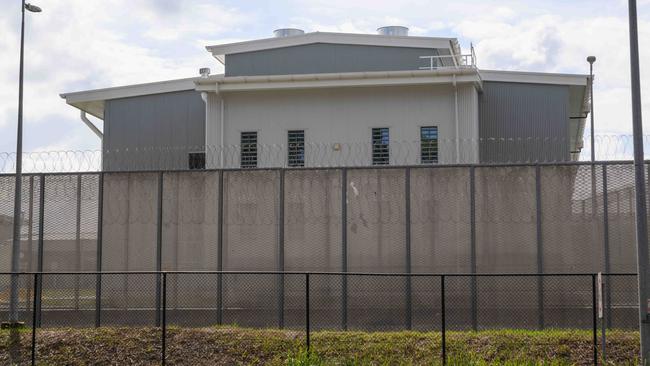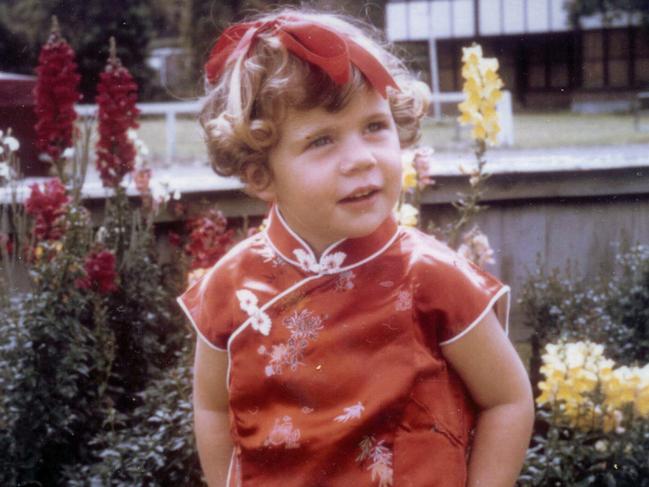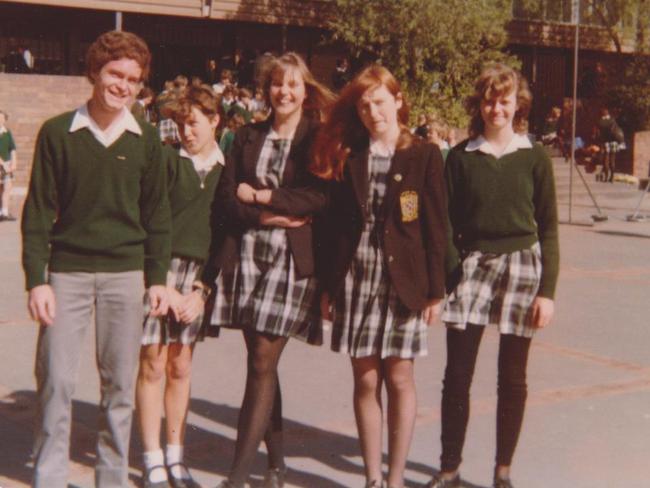Kathleen Fobigg became mother-like figure in prison
Kathleen Folbigg spent most of her two decades in jail with some of Australia’s most depraved female sexual offenders and child killers – and became a mother-like figure to some.
Behind the Scenes
Don't miss out on the headlines from Behind the Scenes. Followed categories will be added to My News.
As a convicted “baby killer”, Kathleen Folbigg was always going to have a target on her back – and on at least one occasion she was bashed and left with a black eye and bruises.
The 55-year-old, who wasfound guiltyin 2003 of killing her four babies, spent most of her two decades in jail in Sydney’s Silverwater, where she mixed with some of Australia’s most depraved female sexual offenders and child killers.
Surprisingly, she became a mother-like figure to some and “a positive role model”.
LISTEN TO THE PODCAST BELOW:
Letters revealed that while under strict segregation inside Silverwater Women’s Willet East protection wing, which is where the worst offenders are held for their own protection, Folbigg counselled fellow inmates, offering advice and life skills.

One prisoner who had been charged with filming herself sexually and indecently assaulting her own three children and uploading the video to a child pornography site, said she had been changed thanks to Folbigg’s counselling.
“Kathleen has had a huge [effect] on me and taught me to come out of my comfort zone and made me feel like an important and wanted woman,” she wrote in a letter from inside Silverwater.

“After many conversations with Kathleen, my thoughts and feelings have changed for the better.
“Thanks to Ms Folbigg she allowed me to improve my life and I am a stronger woman today and that will better my future.”
Read Kathleen Folbigg’s letter pleading for her freedom below:
Another female child killer wrote Folbigg was “a positive role model” for inmates.
However, prison life was not easy and she revealed in one letter that she struggled to sleep and would stuff tissues in her ears to block out the noise.
And, in 2017, Folbigg “snapped” and punched a fellow inmate inside Willet after being taunted about her crimes. She claimed she was under stress at the time.
Then in late December 2020 she was moved to Clarence Correctional Centre in Grafton. Shortly after arriving she was bashed by a fellow inmate.
A leaked letter written by Folbigg to one of her supporters revealed she had been beaten shortly after being transferred.
“I was assaulted on the 1st. Happy New Year to me. No real damage done. Purple eye, few bruises, all because the women didn’t want ‘likes of me’ in their unit,” Folbigg wrote to her pen friend, a retired nurse.

The pen pal told The Australian back in 2021, she feared for Folbigg’s life.
“She continues to suffer physical, emotional and psychological trauma while she is incarcerated,” she said.
At the time Clarence Correctional Centre was just six months old and in a letter Folbigg wrote “the thugs are testing limits and right now they are winning – driving others into Protection Unit which is where I was ‘forced’ to go”.
“Hypocrisy – as most of them have known me for years in Silverwater and didn’t behave this way there!
“It will take major cleansing to rid this jail of these ‘types’ and I’m not sure they’ll bother. It does mean that this place isn’t anything that was promised, at least not from (my) point of view.”
Listen to the Mother’s Guilt podcast on Kathleen Folbigg’s case:
KATHLEEN FOLBIGG’S LIFE OF TORTURE
Long before she was dubbed Australia’s worst female serial killer, Kathleen Folbigg’s life had been shattered by misery and murder.
Born on June 14, 1967, to Kathleen May Donovan and British hoist driver Thomas Jack “Taffy” Britton, Kathleen was only 18 months old when her father stabbed her mother to death in the inner-western Sydney suburb of Annandale where the family lived.
Ms Donovan died before help could arrive, her life cut short by 24 stab wounds. Britton served 15 years jail before being deported to the UK.
After the murder, Kathleen was placed in the care of her maternal aunt and uncle who gave her a new name – Lisa. But less than two years later she was given up to another family who fostered her.

Psychiatrists found she was a “very disturbed little girl” and speculated she may have been abused by her father – but despite the aggression her aunt and uncle complained of, a new family, the Marlborough family from Kotara, welcomed her in to their family.
Folbigg’s new home was with Deirdre and Neville Marlborough, whose own two children were older, but the couple loved children and wanted another.
“We used to take [in] children from church homes,” Mrs Marlborough told author Matthew Benns in his book When The Bough Breaks: The True Story of Child Killer Kathleen Folbigg.
“We couldn’t adopt any of the church kids and Kathy came to us through the government,” she said.
She was never left out of anything the family did, including holidays overseas and around Australia.
Mrs Marlborough remembered Folbigg as a “very pretty little girl with really blonde curly hair” who turned into “a normal teenager”.
Her foster sister, Lea, was 15 when Folbigg came to live with them. She recalled her as an “adorable child”.
“We all loved her to bits.”

Throughout her teens though she was determined to get answers about her biological family.
She eventually tracked down her mum’s brother who told her how her mum died. But there wasn’t much detail, and it seemed to motivate her more to find out the truth of where she came from.
Folbigg’s home life unravelled though in her late teens and she moved out at 17, moving in with school friend Billi-Jo Buckley and her mother.
Ms Buckley said she was fiercely loyal.
“She would stick up for me (at school) and, you know, tell people off and just protect me,” she said.
More Coverage
Originally published as Kathleen Fobigg became mother-like figure in prison




